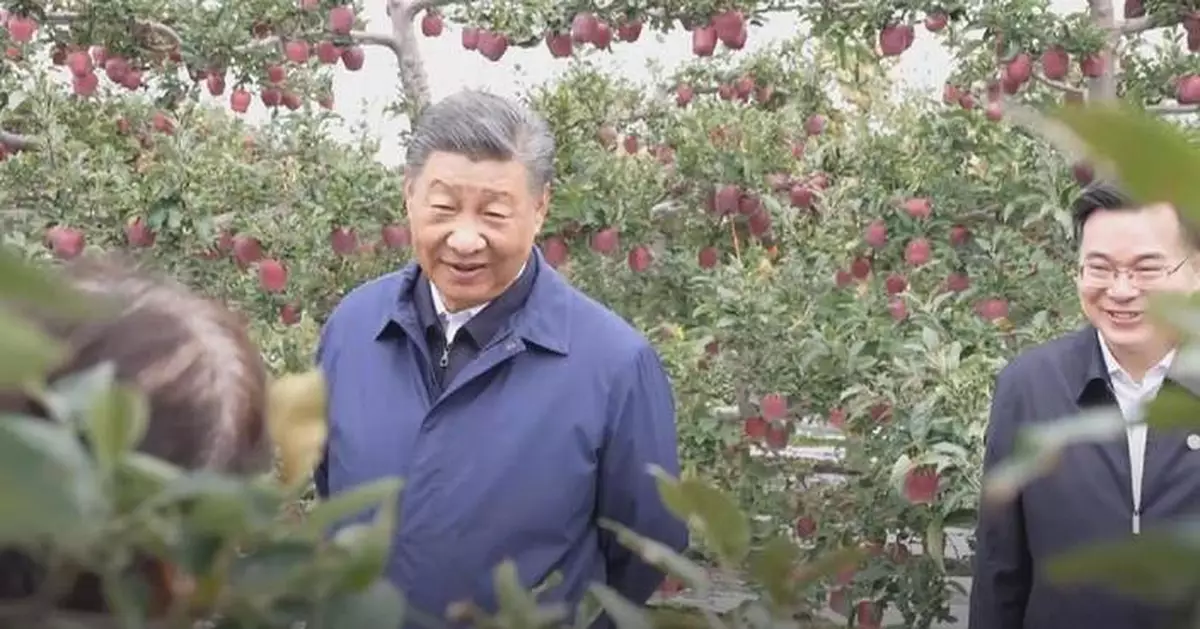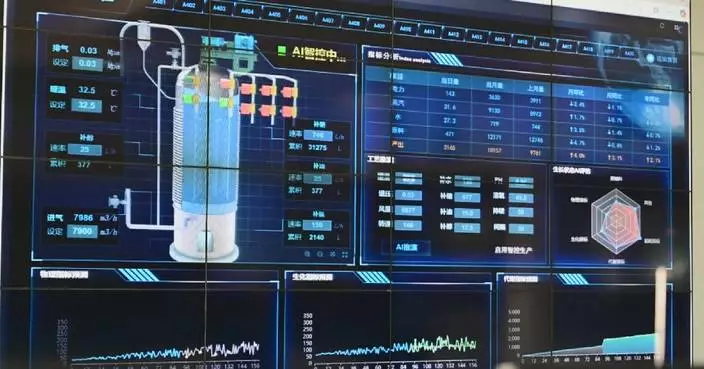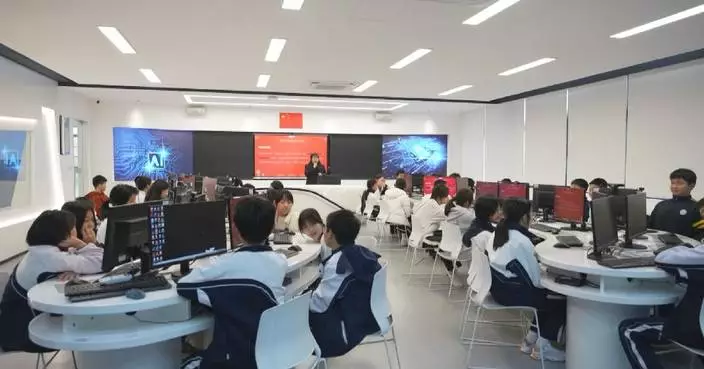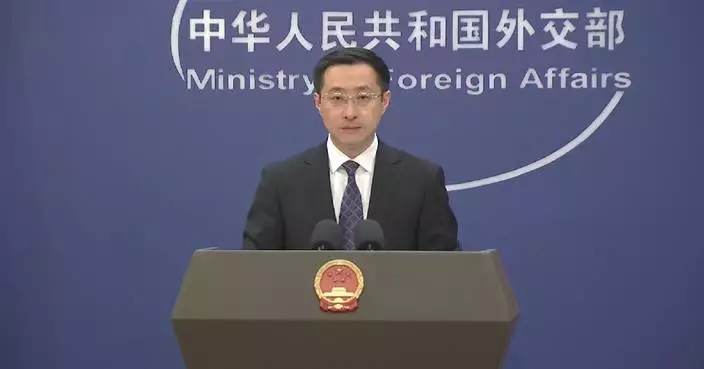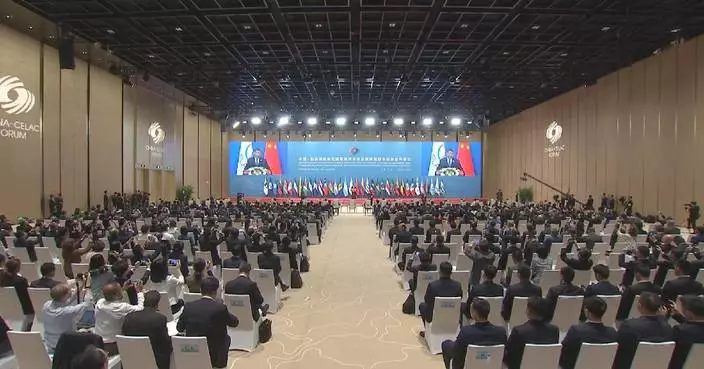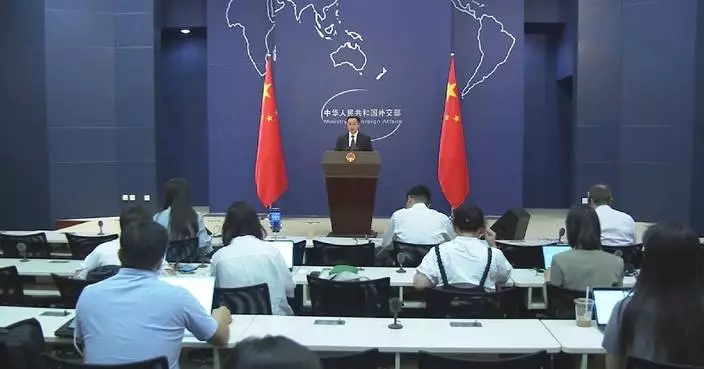Chinese President Xi Jinping, also general secretary of the Communist Party of China Central Committee, inspected cities in northwest China's Shaanxi Province and Gansu Province from Tuesday to Friday, and convened a symposium on ecological conservation and high-quality development of the Yellow River basin.
While inspecting Shaanxi's Baoji City on Tuesday afternoon, Xi visited the Baoji Bronze Ware Museum, the first bronze-themed museum in China for the collection, preservation, exhibition, and research of ancient Chinese bronze ware, to learn about the local efforts to enhance the protection and use of cultural relics.
He also visited a riverside ecological park in the city to learn about the ecological conservation of the Weihe River, the largest tributary of the Yellow River.
Xi then traveled to Tianshui City in neighboring Gansu Province, where he went to the Fuxi Temple, a site dedicated to the mythical ancestor of the Chinese nation Fuxi, and called for efforts to protect and pass on the valuable cultural heritage.
On Wednesday morning, the president went to a local apple production base to learn about a local water supply project and the modern specialty fruit industry in mountainous areas.
He also visited the Maijishan Grottoes, one of China's four largest Buddhist cave complexes, to understand local efforts in protecting and passing on cultural heritages.
In the afternoon, Xi visited a residential community in Gansu's provincial capital Lanzhou, where he learned about the local government's measures to improve public services, enhance the well-being of the people, and strengthen comprehensive public security maintenance.
In Lanzhou, Xi also visited the Yellow River section near the Zhongshan Bridge and was briefed on the efforts made by local authorities to promote ecological conservation in the Yellow River basin.
On Thursday morning, Xi, also chairman of the Central Military Commission (CMC), met with senior officers and representatives of soldiers and civilian staff of the Chinese People's Liberation Army troops stationed in Lanzhou.
At the symposium on Thursday afternoon, Xi called for efforts to further deepen reform in a comprehensive way, and use it as a driving force to break new ground in the ecological conservation and high-quality development of the Yellow River basin. On Friday morning, Xi listened to the work reports from the CPC Gansu Provincial Committee and the provincial government, and urged the provincial authorities to deepen reform, make innovation, and do solid work to improve the people's well-being and the province's prosperity.
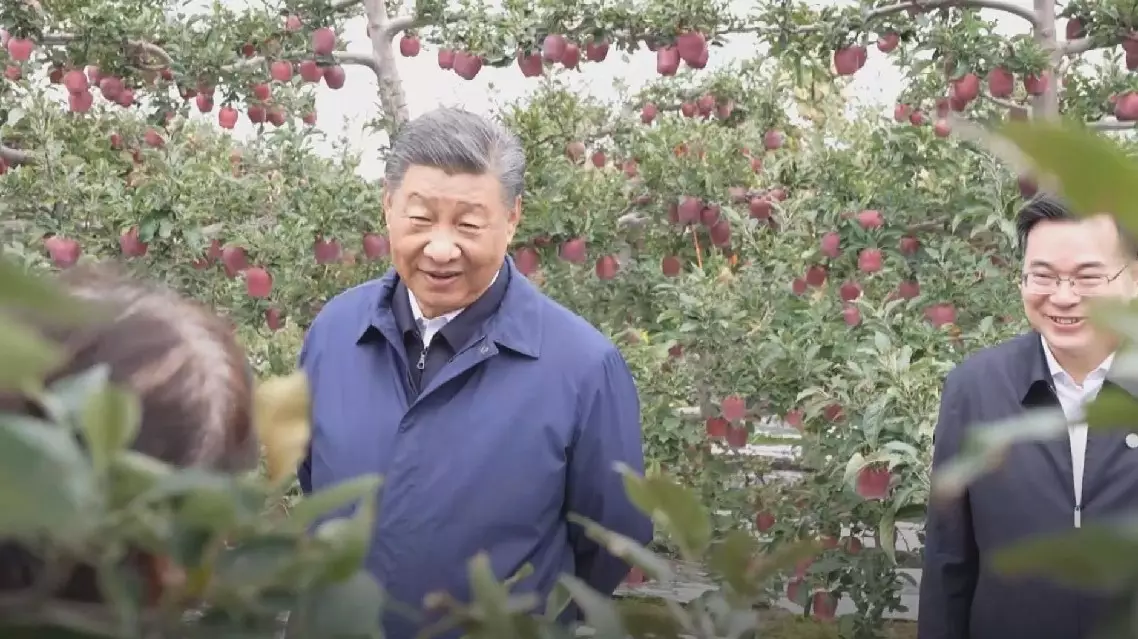
Xi makes inspections in northwest China's Shaanxi, Gansu provinces
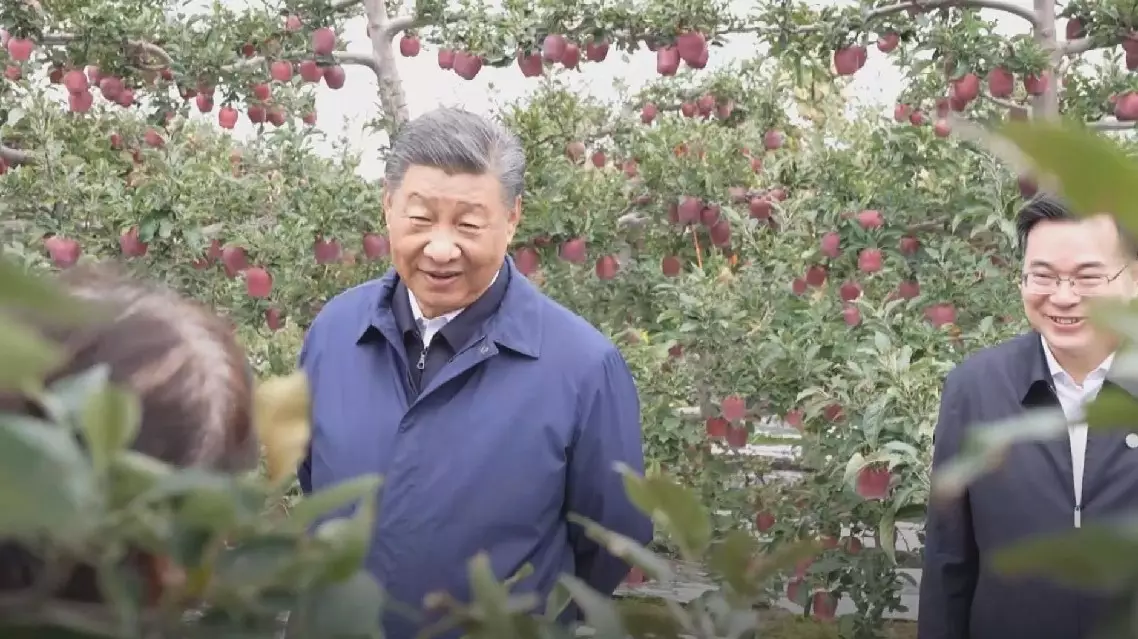
Xi makes inspections in northwest China's Shaanxi, Gansu provinces
French scientists at the Institute of Earth Physics in Paris (IPGP) are using lunar samples collected by China's Chang'e-5 space mission to explore the mysteries of the Moon.
This is part of the results that the China National Space Administration announced on April 24, granting scientists from institutions in France, Germany, Japan, Pakistan, the United Kingdom, and the United States to borrow lunar samples from the Chang'e-5 mission for scientific research.
Frederic Moynier, a professor at the IPGP, personally transported the lunar samples to his lab in Paris.
Moynier said that these samples, extracted from the north of the Mons Rumker in Oceanus Procellarum, also known as the Ocean of Storms, are notably younger by nearly a billion years compared to those retrieved during the Apollo missions. This revelation suggests a prolonged period of lunar volcanic activity that extends beyond previous scientific understanding, he added.
"The Moon is a very cold planet and so you have no activities. But these Chang'e-5 samples really changed our understanding, we had volcanism much later than what we thought, and this makes us think about what is inside the Moon and why could you have volcanisms so late," said Moynier, also a member of the IPGP's Cosmochemistry, Astrophysics and Experimental Geophysics (CAGE) team.
Employing isotope detection techniques, Moynier is meticulously analyzing the traces of various elements within the lunar samples, aiming at juxtaposing the findings from the Chang'e-5 lunar samples with those from other space missions and constructing a comprehensive portrait of the Moon's composition.
"My expectation is that it will be probably similar to Apollo, and if it is similar, we mean that we can now make a real story about the whole moon. If this is different, which I don't know yet, but if this is different, it's probably even more interesting. It means that the Moon, inside, is not homogeneous like the Earth," he said.
Recognizing China's prowess in space research, Moynier foresees a deepening collaboration between Chinese and French scientists with the arrival of lunar samples in French laboratories.
"Because of the Chang'e-5 sample, but also because they have lots of former students who are successful professors in China. So, I used to go to work in China several times a year for exchange, to give conferences," said Moynier.
Long Zhengyu, a Chinese Ph.D. student at the IPGP, highlighted the significance of international cooperation.
"Foreign labs can provide us with some analysis and testing conditions with the Chang'e lunar samples from China. So, this marks the scientific research collaboration between China and France," said Long.
In December 2020, the Chang'e-5 probe brought back China's first samples collected from the moon, successfully concluding China's three-step lunar exploration program of orbiting, landing, and returning samples. The program began in 2004.
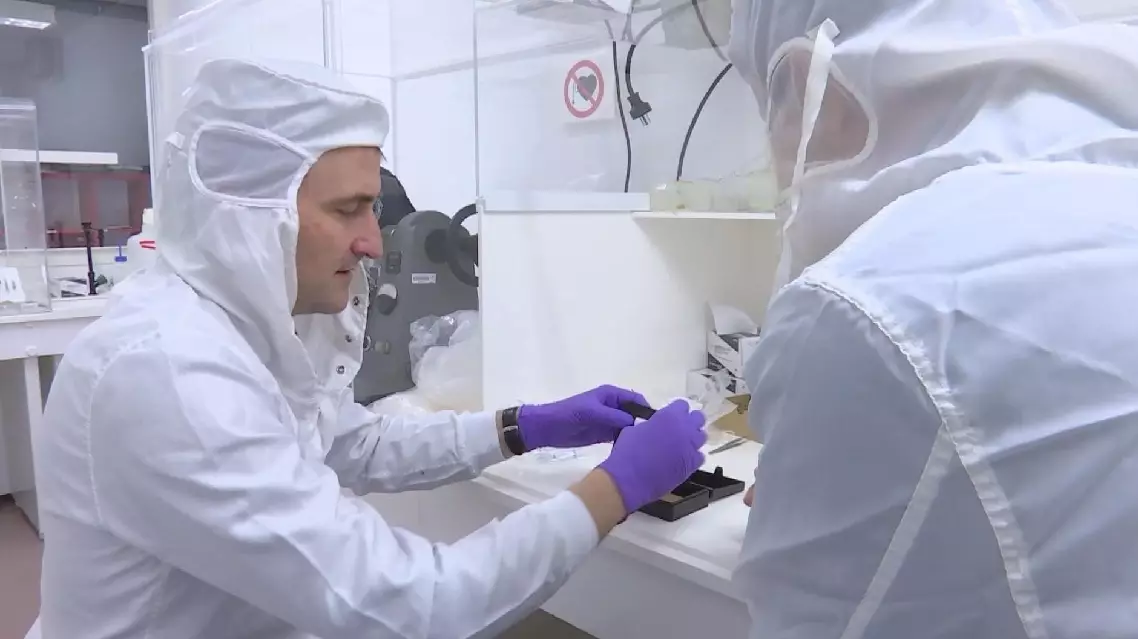
French scientists conduct research on lunar samples borrowed from China




